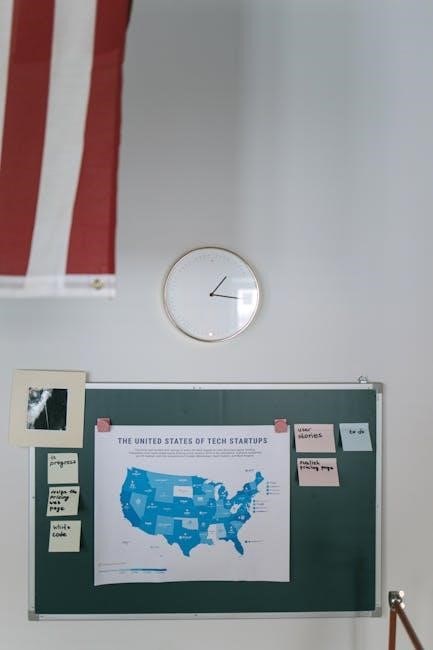Executive Summary
A mobile bar business plan outlines the strategy for a portable bar service, offering high-end cocktails at events. It targets events needing unique drink options, focusing on operational efficiency and customer satisfaction to establish a strong market presence.
1.1 Business Concept
The mobile bar business concept revolves around offering high-end, customizable cocktail services at events, parties, and gatherings. This portable bar service specializes in serving creative and unique drink options, catering to events with 25 to 300 guests. The concept emphasizes flexibility, allowing the bar to be easily transported and set up at various locations. By focusing on premium ingredients and expertly crafted cocktails, the mobile bar aims to provide a distinctive and memorable experience for clients. The business concept also includes tailored menu development, ensuring that the offerings align with the theme and preferences of each event. This approach positions the mobile bar as a versatile and luxurious addition to any celebration, making it a standout option in the event services industry.
1.2 Business Objectives
The primary objectives of the mobile bar business are to establish a reputation as a premier provider of high-end cocktail services, achieve operational efficiency, and ensure profitability. The business aims to expand its market presence by targeting a diverse range of events, including weddings, corporate functions, and social gatherings. Key objectives include developing a loyal client base, increasing revenue through strategic pricing models, and maintaining high customer satisfaction. Additionally, the business seeks to differentiate itself through innovative menu development and exceptional service quality. By focusing on these objectives, the mobile bar plans to solidify its position in the competitive event services market while consistently delivering unique and memorable experiences for its clients.
Market Analysis
The mobile bar market is growing rapidly, driven by increasing demand for unique event experiences. Competition is rising, emphasizing the need for differentiation and exceptional service quality always.

2.1 Industry Overview
The mobile bar industry has experienced significant growth, fueled by the increasing popularity of events requiring unique and customizable beverage services. With a focus on portability and versatility, mobile bars cater to a wide range of events, from intimate gatherings to large-scale celebrations. This trend is driven by consumer demand for premium, craft cocktails and personalized experiences. The industry is becoming increasingly competitive, with operators differentiating themselves through innovative offerings, high-quality ingredients, and exceptional customer service. As a result, the mobile bar sector is expected to continue its upward trajectory, presenting lucrative opportunities for entrepreneurs who can deliver unique and memorable experiences. The market’s growth highlights the importance of adaptability and creativity in meeting evolving consumer preferences.
2.2 Target Market
The primary target market for a mobile bar business includes event planners, wedding organizers, corporate event coordinators, and individuals hosting private gatherings. These clients seek unique, high-quality beverage experiences for events ranging from intimate parties to large celebrations. The target audience values convenience, customization, and premium service, often willing to pay a premium for tailored cocktail offerings. Additionally, the market includes venues without permanent bar setups, such as outdoor event spaces or private estates. By focusing on these segments, a mobile bar can effectively cater to diverse needs, ensuring a consistent flow of bookings and establishing a strong foothold in the market. Understanding these target groups is crucial for tailoring services and marketing efforts to meet their specific demands and preferences.

Services Offered
A mobile bar offering high-end cocktail services for events, specializing in creative and unusual drink options. Provides customizable beverage packages and experienced mixologists for weddings, corporate events, and private gatherings.
3.1 Menu Development
Menu development focuses on creating unique and appealing cocktail offerings, catering to diverse tastes and preferences. The menu includes signature drinks, classic cocktails, and customizable options using fresh ingredients. Seasonal specials are introduced to keep offerings fresh and aligned with current trends. Collaborations with local breweries, wineries, and distilleries enhance the menu’s local flavor. A tasting menu is available for events, allowing guests to sample a variety of drinks. The menu is designed to be flexible, adapting to the specific needs of each event, ensuring a personalized experience for clients and their guests, making it a standout feature of the mobile bar service.
3.2 Pricing Models
The mobile bar offers flexible pricing models to accommodate various event needs. The “Host Bar” model charges a fixed beverage fee per person per hour, with packages starting at $15 per guest. An “Open Bar” option is available for a flat fee, covering all drinks for a set duration. Custom pricing is also offered for tailored events, ensuring affordability and value. Discounts are provided for long-term bookings or large events, enhancing client appeal. Payment plans are flexible, with deposits securing bookings and balances due before the event. This structured approach ensures transparency and suitability for different client budgets, making the mobile bar a cost-effective and attractive option for events.

Marketing Strategy
The mobile bar employs a dynamic marketing strategy, focusing on branding, social media engagement, and event partnerships. Targeted advertising and promotional events attract diverse clientele, ensuring market visibility and growth.
4.1 Branding
Branding is central to the mobile bar’s identity, ensuring a memorable and unique presence. The business will adopt a distinctive logo, vibrant color scheme, and tagline reflecting its mission. Consistent messaging across all platforms emphasizes quality, creativity, and exceptional service. Social media campaigns highlight signature cocktails, behind-the-scenes insights, and customer testimonials to build trust and loyalty. Strategic partnerships with event planners and venues further enhance visibility. The brand’s visual appeal and storytelling aim to create an emotional connection, positioning the mobile bar as the go-to choice for events seeking exceptional beverage experiences. This cohesive approach ensures long-term recognition and customer satisfaction in a competitive market.
4.2 Promotional Tactics
The mobile bar business will employ a multi-channel promotional strategy to attract and retain clients. Social media campaigns on platforms like Instagram and Facebook will showcase signature cocktails, behind-the-scenes event setups, and customer testimonials. Referral programs will incentivize existing clients to recommend the service, offering discounts on future bookings. Email marketing will share newsletters with seasonal drink menus, event tips, and special offers. Partnerships with local event planners and venues will enhance visibility. Limited-time promotions, such as “Cocktail of the Month” specials, will drive engagement. Additionally, attendance at bridal expos and food festivals will showcase the bar’s capabilities. These tactics aim to build a loyal client base and establish the brand as a top choice for event beverage services.

Operational Plan
The mobile bar will manage event logistics, maintain high-quality equipment, and ensure exceptional service delivery at all events, organized efficiently by skilled staff, achieving operational excellence.
5.1 Logistics
Efficient logistics are crucial for the mobile bar’s success. This includes transporting equipment, managing inventory, and ensuring timely arrival at events. The mobile bar will utilize a well-maintained vehicle equipped with necessary tools and supplies. Inventory management will focus on tracking alcohol, mixers, and garnishes, ensuring adequate stock for events. Staff will be trained in setup and breakdown procedures to minimize downtime. Additionally, the mobile bar will have contingency plans for unexpected delays, such as alternative routes or backup equipment. By streamlining these processes, the mobile bar ensures a seamless experience for clients and guests, maintaining a professional and reliable service.
5.2 Staffing
Staffing is a critical component of the mobile bar’s operations. The business will hire experienced bartenders, mixologists, and support staff to ensure high-quality service. Recruitment will focus on individuals with excellent interpersonal skills and knowledge of cocktails. Training programs will be implemented to ensure consistency in service delivery and adherence to safety protocols. The team will be equipped to handle event setups, cocktail preparation, and teardown efficiently. Staff scheduling will be flexible to accommodate varying event demands, ensuring adequate coverage during peak periods. Additionally, the business will comply with all legal requirements, including certifications for alcohol service and food safety. A well-trained and motivated team is essential for delivering exceptional customer experiences and building a strong reputation.
Financial Plan
The financial plan outlines startup costs, revenue projections, and funding requirements. It includes detailed financial statements and strategies for achieving profitability and long-term sustainability.
6.1 Startup Costs
Starting a mobile bar business requires initial investments in equipment, licensing, and marketing. The primary costs include purchasing a mobile bar unit, high-quality cocktail equipment, and inventory. Additional expenses cover event insurance, health department permits, and branding materials. Initial staffing costs, including bartender training, also factor in. A detailed breakdown ensures resource allocation aligns with business goals, providing a clear financial roadmap for launch and early operations.
6.2 Revenue Projections
Revenue projections for a mobile bar business are based on event bookings, pricing models, and demand. The business can generate income through fixed fees per person, custom packages, and premium add-ons like signature cocktails. Average revenue per event is estimated at $2,500 for 100 guests, with potential to increase for larger events. Annual revenue is projected to reach $150,000 in the first year, growing by 15% annually for the next three years. Factors influencing revenue include seasonality, market demand, and the ability to secure high-volume events. Financial models also account for variable costs, ensuring profitability as the business scales.
